Six University of Georgia faculty and staff members are being honored for their commitment to public service and outreach.
Walter Barnard Hill Fellow
The Walter Barnard Hill Fellow Award for Distinguished Achievement in Public Service and Outreach is named for Chancellor Walter B. Hill, who led the University of Georgia from 1899 to 1905. Hill was a pioneer who helped define the university’s modern public service and outreach mission. The Hill Fellow recognizes faculty for long-term achievements and special projects that have extraordinary impact, and collaborative efforts that improve quality of life in Georgia. Only past UGA Hill Award winners are eligible to become a Hill Fellow. Each Hill Fellow receives a medallion, a permanent salary increase and $2,000 in discretionary funds per fiscal year for three consecutive years to advance his or her public service work.
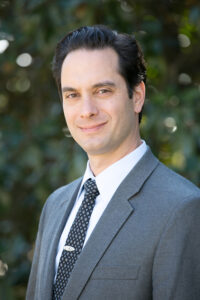
Danny Bivins is a senior public service associate with the Carl Vinson Institute of Government who focuses on partnerships that increase the economic development potential of communities and the state while providing valuable experiential learning opportunities to students.
Since 2013, Bivins has directed the Georgia Downtown Renaissance Partnership, a statewide downtown revitalization program that addresses design and economic development, drawing on the expertise of public and private organizations and foundations to bring their collective expertise to bear on community needs.
The premier component of the program is the Renaissance Strategic Visioning and Planning (RSVP) Process, through which the institute works with a community to develop its vision for the future and steps for implementation. Since 2013, the institute has worked with communities to develop 25 RSVPs, with implemented plans resulting in more than $220 million of construction, revitalization and other improvements.
Bivins was a key partner in developing the Georgia Economic Placemaking Collaborative, which focuses on a community’s desirability as a place to live to attract multigenerational talent. Communities receive education, facilitation, technical assistance, peer learning and incentives to identify their assets and develop a locally based placemaking strategy. Fifteen Georgia cities and counties have been selected so far.
Bivins has created a unique community and economic development approach that uses visual communication to inspire downtown development, engage local and state leadership, and stimulate private and philanthropic investment. Bivins’ programs include experiential learning opportunities for undergraduate and graduate students. In collaboration with three College of Environment and Design faculty members, he has co-led eight studio courses with 111 students in six Georgia communities.
Engaged Scholar
The Engaged Scholar Award recognizes a tenured associate or full professor who has made significant career-spanning contributions to the University of Georgia’s public service mission through scholarship, service-learning opportunities for students and campus leadership. The awardee receives a $5,000 faculty development grant to sustain current engaged scholar endeavors or to develop new ones.
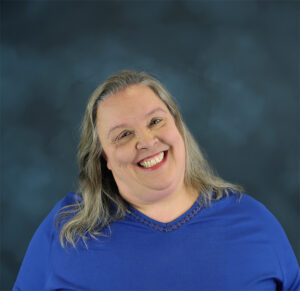
Diane W. Bales is a UGA Extension human development specialist, Child Life Program director and professor of human development and family science in the College of Family and Consumer Sciences. In these positions, she engages in diverse activities, including applied research, high-impact instruction and experiential and service-learning activities that advance the University of Georgia’s public service and outreach mission.
Since 1998, Bales has provided leadership and content expertise for the Better Brains for Babies initiative, a collaboration of public and private organizations dedicated to promoting the importance of early brain development in infants and young children. Bales has trained more than 700 educators in four states, including Georgia, about the importance of early brain development on children’s overall growth.
Her classes on child development include experiential, hands-on applications in class and in community-based service-learning projects.
As a primary investigator on a series of grants from the USDA Rural Health and Safety Education program on opioid awareness, Bales partnered with FACS Extension agents to conduct assessments in six Georgia communities with high opioid use and poverty rates. Based on responses to the assessments, Bales and UGA Extension are working with the communities to develop hubs for education and support around opioid misuse.
Walter Barnard Hill Award
The Walter Barnard Hill Award also is named for Chancellor Walter B. Hill. The Hill Awards recognize distinguished achievements by public service faculty who have contributed to a better quality of life for the people of Georgia. Each award recipient receives a medallion, a permanent salary increase and a framed certificate in honor of his or her achievement.
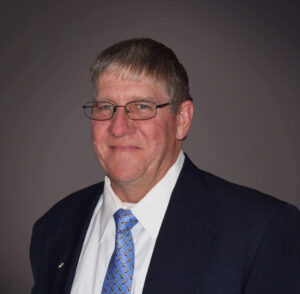
Phillip Edwards is the Southwest District water agent and a senior public service associate for UGA Extension. He served as county extension coordinator in Irwin County for 18 years, overseeing the county program’s administration, including budget, funds development, needs assessment, adherence to policy and employee oversight.
For 36 years, Edwards has called Irwin County home, and his work addresses the needs of the farm clientele there.
Edwards has conducted 147 applied research trials since 1998, most of them focused on cotton, to which more county land is devoted annually than any other commodity. Growers count on him at critical points in the growing season, from planting to defoliation. He coordinates multiple cotton-related county meetings that bring updated information to farmers, who use the information each year as they progress through the growing season.
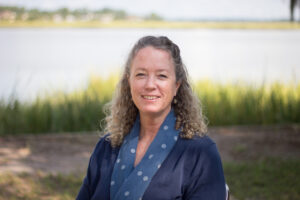
Anne Lindsay is associate director of marine education and senior public service associate at UGA Marine Extension and Georgia Sea Grant. She teaches marine science and coastal ecology for pre-K through adult audiences and oversees the UGA Marine Education Center and Aquarium on Skidway Island near Savannah.
The focus of her work is to provide opportunities for students of all ages and backgrounds to connect with the natural world, engage in current coastal science and develop as stewards of the Georgia coast. She has implemented new programs, engaged diverse audiences, hired talented faculty and staff, and secured new funding. She has significantly enhanced the center’s interpretive capacity with new exhibits and educational elements, as well as new outdoor teaching spaces and buildings. Under her leadership, the center has seen a significant increase in school groups and general visitors.
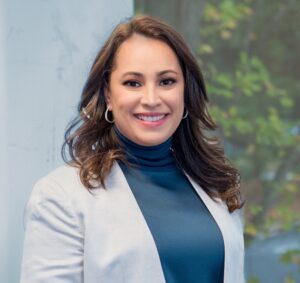
Carolina Ramon is director of specialty programs for the UGA Small Business Development Center. In this role, she manages the SBDC’s International Trade Center, Multicultural Business Division and the state Small Business Credit Initiative across Georgia. Prior to this, she was the first Latina woman to be director of the SBDC Office of Minority Business Development, a position she held from 2017 until moving into her current job in 2021.
Since 2015, she has helped small business owners and disadvantaged groups understand complex government contracting programs.
She has provided more than 3,500 hours of business consulting related to government contracts to 460 Georgia business owners and has helped socially and economically disadvantaged business owners secure $148 million in contracts with federal and local governments.
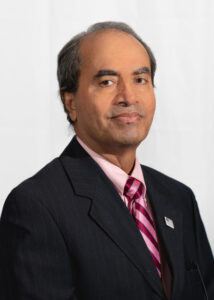
Uttam Kumar Saha is a senior public service associate and the program coordinator of the Feed and Environmental Water Laboratory for UGA Extension. In that role, he operates a lab with a collaborative team of UGA experts who test for and mitigate threats to air, water and feed/food.
In 2010, routine water testing by Saha and colleagues led to the discovery of uranium in some household wells in north Georgia and launched an aggressive program to monitor and address the threat. Radon, a radioactive gas causing lung cancer, exists in indoor air people breathe and is found in well waters often together with uranium. His team was awarded a Georgia State Indoor Radon Grant by the EPA in 2012, with awards totaling $2.5 million. Since 2012, the team has helped with mitigation of 3,000 homes for indoor air radon and 200 private wells for radon in water. They continuously update Georgia’s indoor air and well-water radon map.


